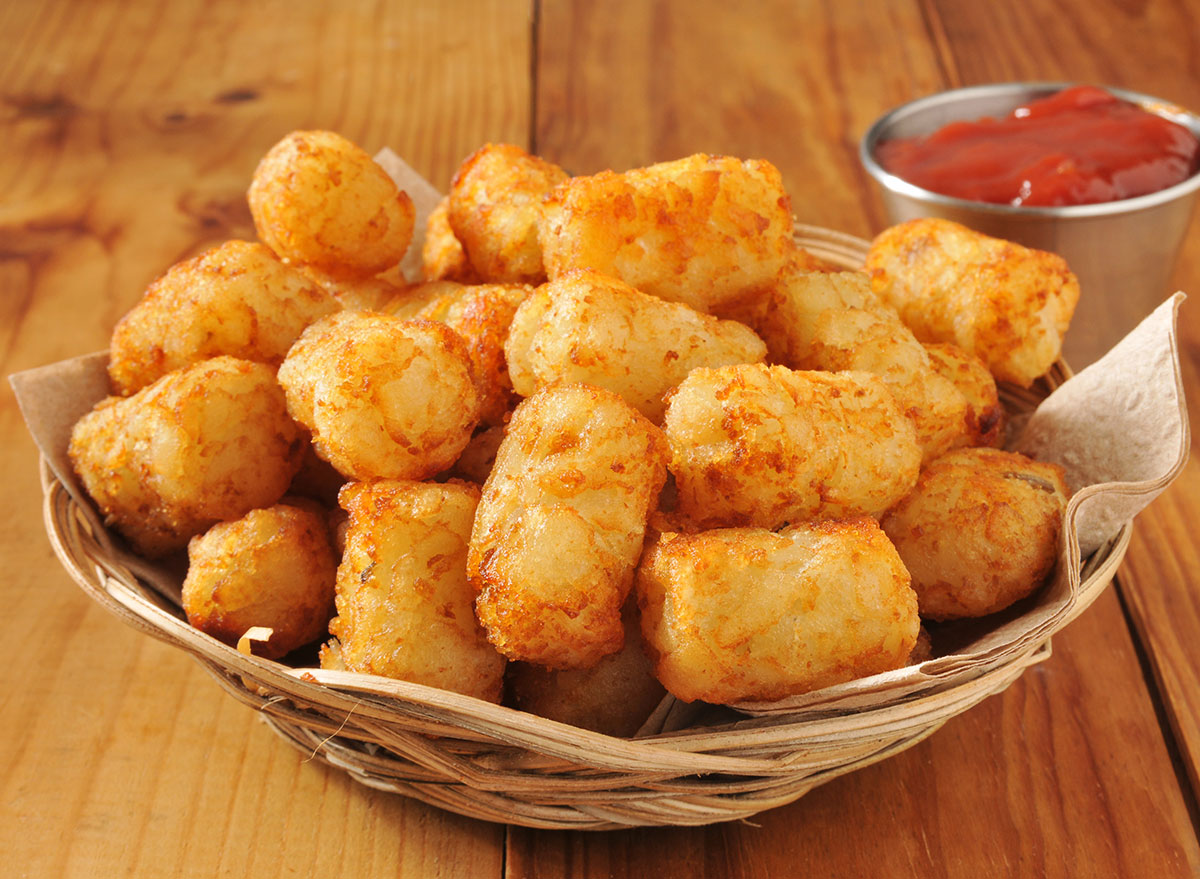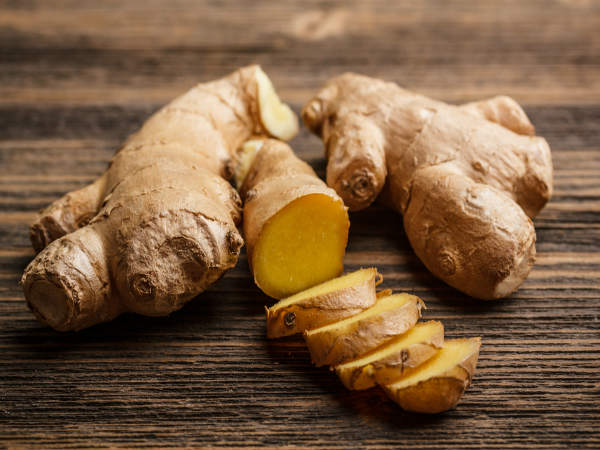
1. Ginger
It aids the pain and discomfort of the stomach. Ginger or ginger juice has an anti-inflammation activity that soothes inflammation of the stomach and oesophagus. It also prevents the buildup of gastric juices, a common symptom in hiatal hernia (upper part of the stomach).
What to do: Chew raw ginger or make a juice out of it or add it to the tea. Consume it at least three times a day.
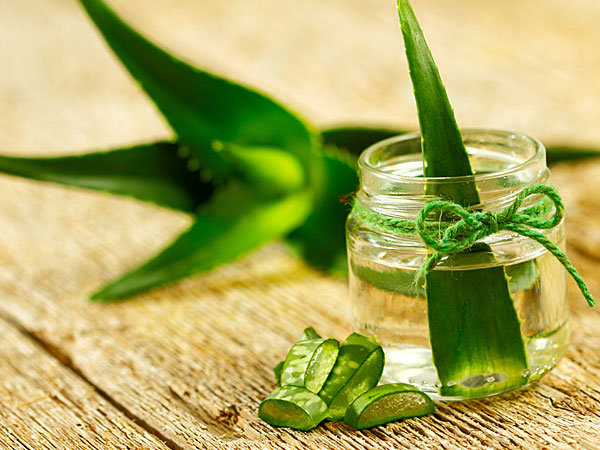
2. Aloe Vera
Gastroesophageal Reflux Disease (GERD) could be a symptom of hiatal hernia or long-term exposure to GERD can cause hiatal hernia. In a pilot study, aloe vera has reduced the frequencies of GERD symptoms, such as heartburn, nausea, dysphagia and acid regurgitation, when taken twice- in the morning and 30 minutes before sleep. [1]
What to do: Drink aloe vera juice in empty stomach in the morning. You can also apply aloe vera in the bulged area.
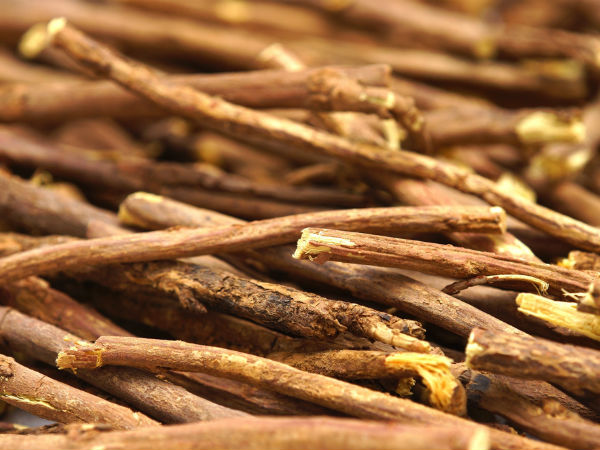
3. Licorice
In a person with oesophagal hiatus hernia, gastritis is the common problem. [2] Licorice root is beneficial in the treatment of gastric inflammation. In a controlled study, licorice extract has shown a significant decrease in symptoms of a hernia, hence improving the quality of life. [3]
What to do: Prepare a tea by boiling licorice root in water for a few minutes. Consume it at least twice a day. Avoid its overconsumption.
 11 Safe And Effective Home Remedies To Remove Earwax And Treat Earache
11 Safe And Effective Home Remedies To Remove Earwax And Treat Earache

4. Chamomile Tea
Flavonoids in chamomile tea have anti-inflammatory and antiphlogistic activities. It has great value as a digestive relaxant. Chamomile tea helps to treat multiple gastrointestinal disturbances that include hiatal hernia and GERD. [4]
What to do: Drink chamomile tea at least twice a day. Avoid its overconsumption.
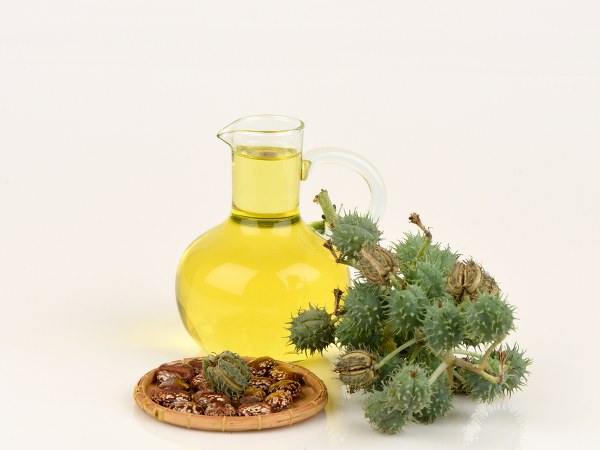
5. Castor Oil
A study says that ricinoleic acid in castor oil could be a better option to treat anti-inflammatory disorders. As hernia is mainly characterised by inflammation of the body organs, the oil helps soothe the pain and swelling of herniated areas. [5]
What to do: Take a cotton cloth folded in several layers. Soak the cloth in castor oil (not dripping) by pouring the oil in the pan first. Cover the affected area with the oil-wet cloth. You can also cover the area with a plastic wrap (after applying the cloth) and apply heat pack for the better absorption of the oil by the body. Avoid heat if there’s an open wound. Cover the area with a towel and leave it for 60-90 minutes. Wash the area with baking soda and water solution. Repeat the process at least four continuous days in a week.
READ RELATED: Bladder cancer patients who are too frail for chemo offered hope as health chiefs approve drug
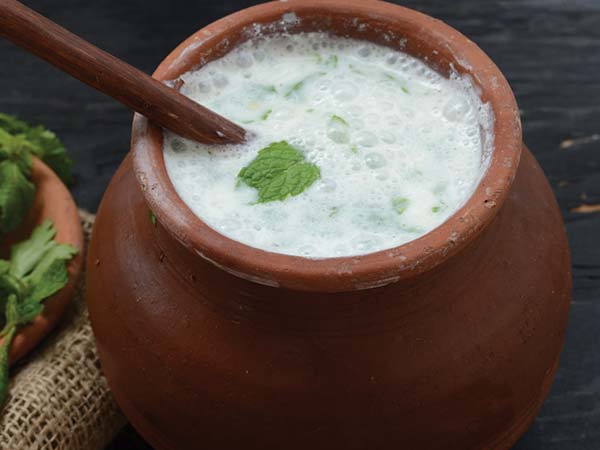
6. Buttermilk
A safe diet is always better to prevent hernial symptoms from getting complicated. Buttermilk is considered a safe option for people with hiatal hernia as it is rich in probiotics that help reduce acids in the stomach. Other foods good for hernia are unsweetened yoghurt, whole grains, lean proteins, fruits and leafy greens. Caution, if you are allergic to buttermilk, avoid it.
What to do: Consume it at least thrice a day or with every meal.
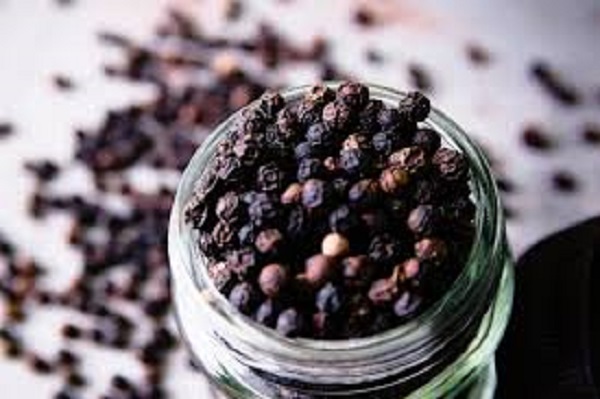
7. Black Pepper
Piperine in black pepper has anti-inflammatory property. It is widely used in treating inflammation and digestive issues such as indigestion, flatulence and acid reflux. There are fewer studies on how black pepper treats hernia but its active compound may help prevent some of its symptoms and speed up the healing process.
What to do: Include the herb in every meal. You can also have it with teas. Prepare lemon tea every morning and add half a tsp of black pepper.

8. Water
A hiatal hernia can worsen the acid reflux in the stomach and cause GERD. A study found that frequent sipping of water helps in the management of acid reflux. It clears the acids of the oesophagus by diluting them and helps manage symptoms to some extent. [6]
What to do: Sip water at every half an hour. Avoid drinking too much at a time as it may cause an adverse reaction.
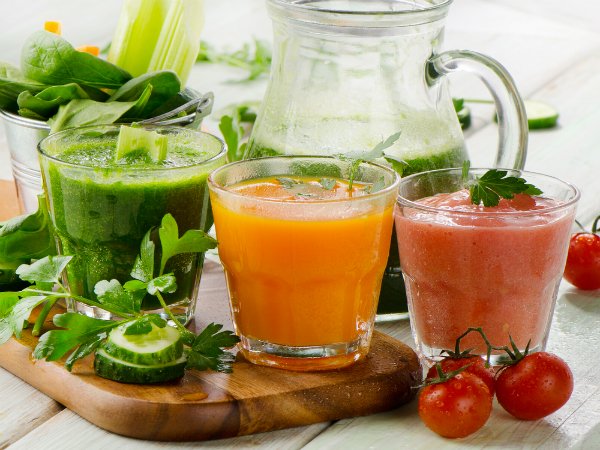
9. Vegetable Juice
Vegetable juice has multiple health benefits due to the presence of vitamins, minerals and antioxidants. For hernia, juice made especially of broccoli, carrots, kale, ginger and spinach are considered beneficial. Vegetable juice also has anti-inflammatory properties. Altogether, these veggies help to inhibit the hernia symptoms.
What to do: Mix the aforementioned vegetables and blend them to juice. You can also add a pinch of salt for better taste.
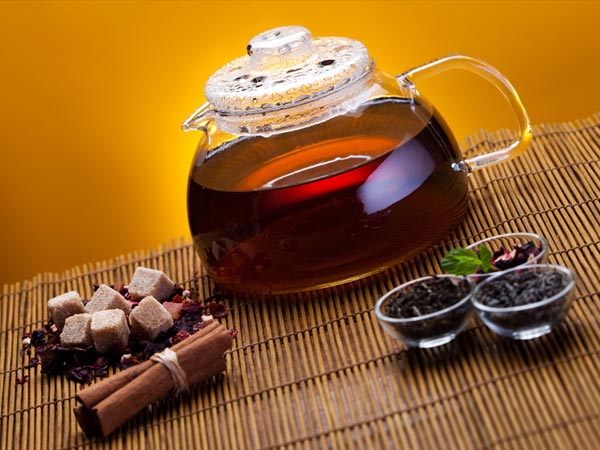
10. Cinnamon Tea
In the writings of Susruta (father of surgery) and Charaka (father of Ayurveda), cinnamon holds a great purpose. Drinking cinnamon tea soothes the lining of the stomach and eases pain related to hernia due to its anti-inflammatory properties. [7]
What to do: Prepare cinnamon tea by boiling the herb in water. You can also mix its powder in warm water and drink in the morning.

Other Methods For Easy Relief
- Eat lighter meals at regular intervals rather than overconsuming at a time.
- Perform simple exercises daily or do yoga.
- Obesity can complicate hernia symptoms. Therefore, try to lose weight but not by putting more physical strain.
- Avoid spicy and acidic foods (including acidic fruits) and go for fibre-rich foods.
- Avoid taking any kind of stress.
Source: boldsky blog








